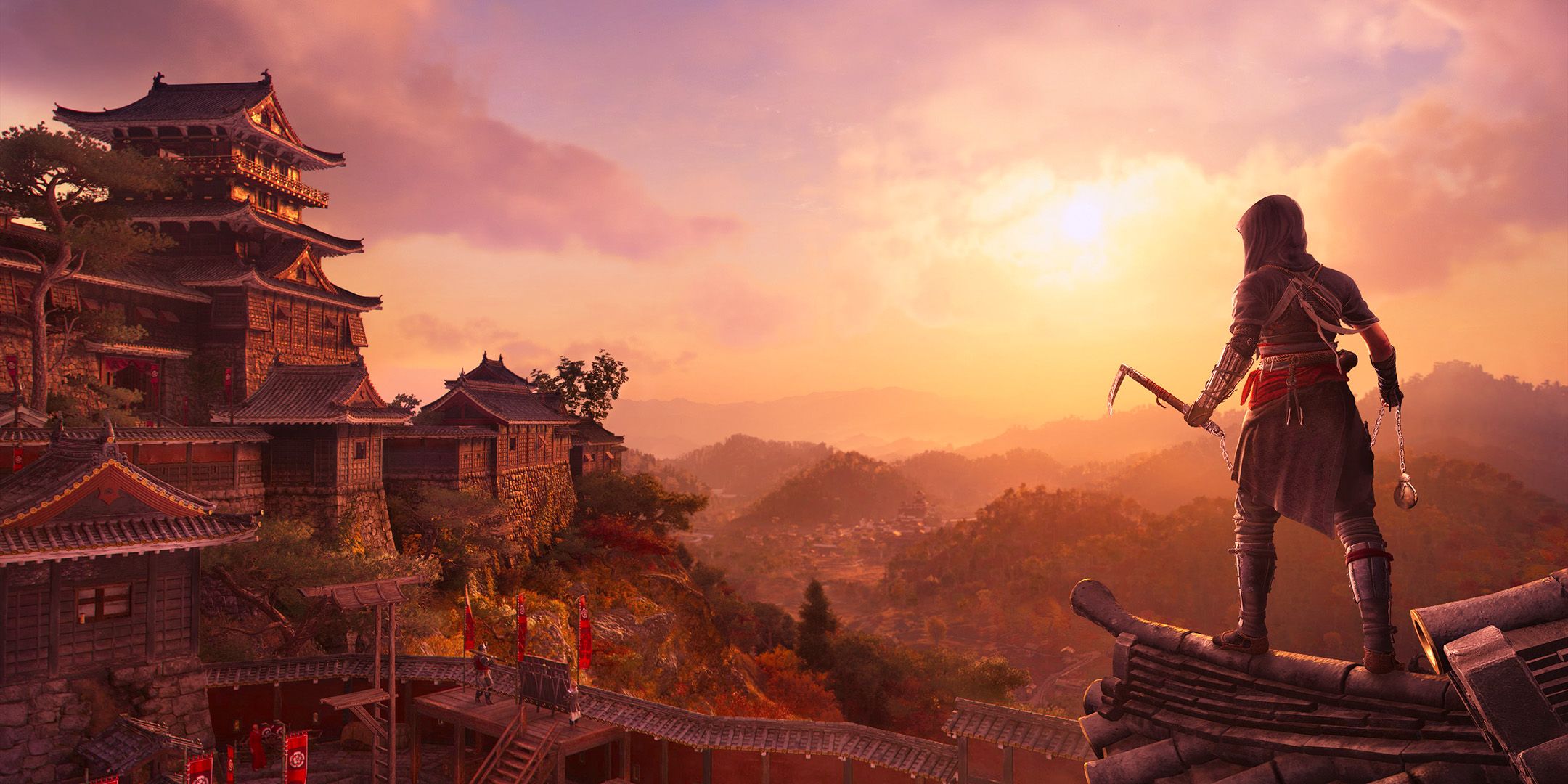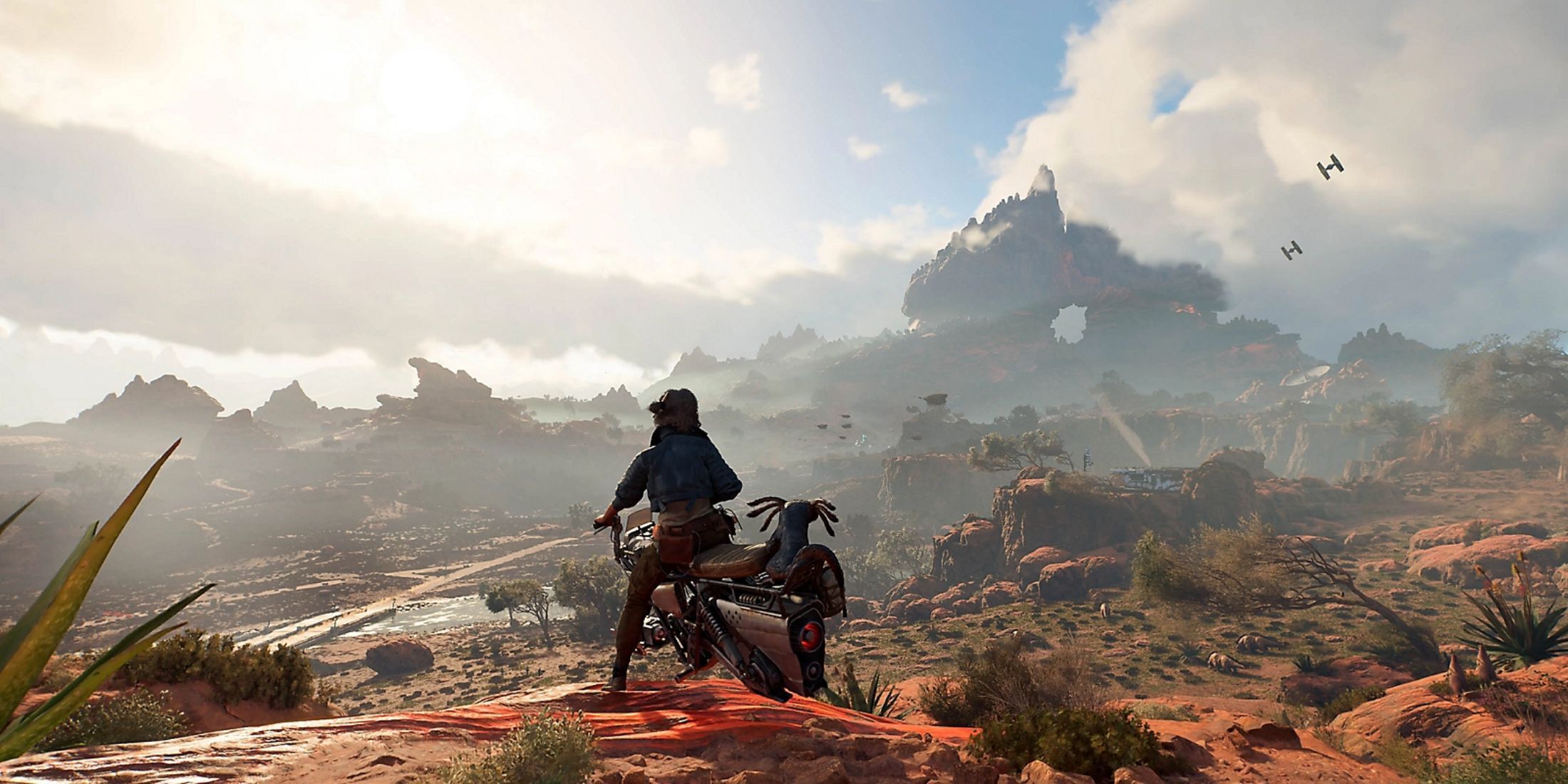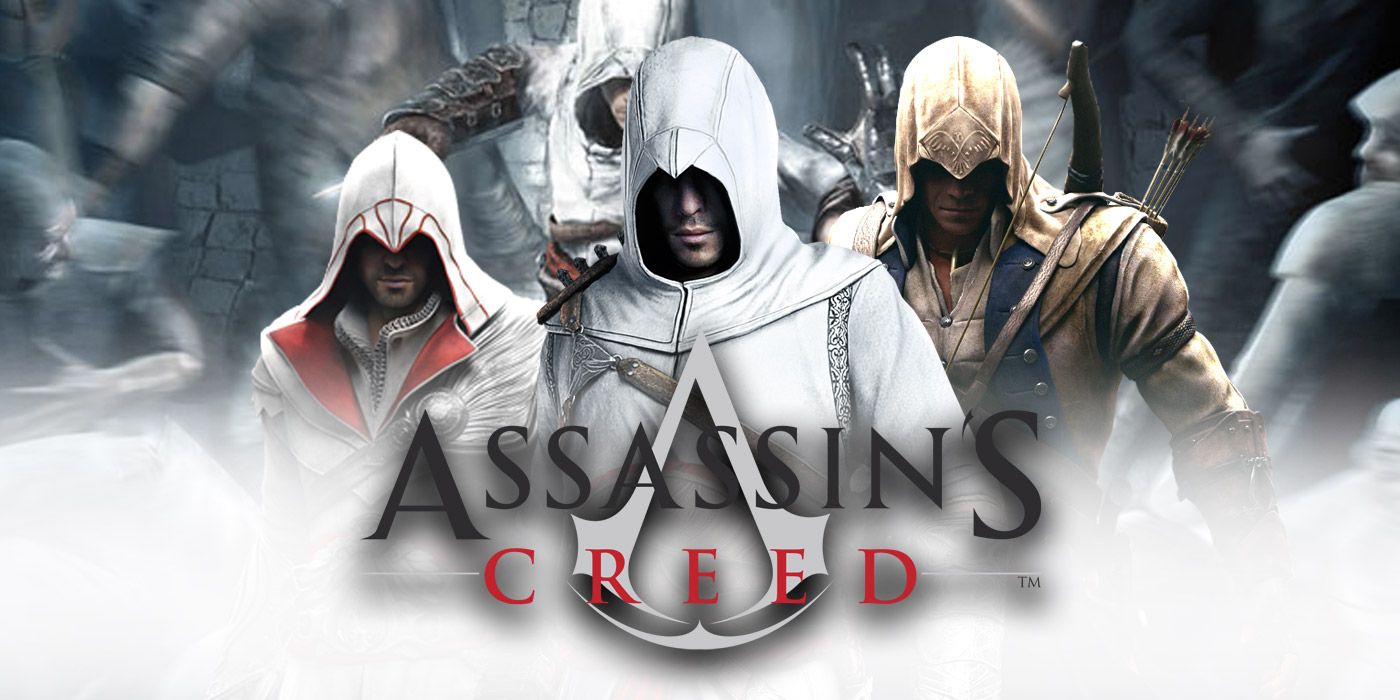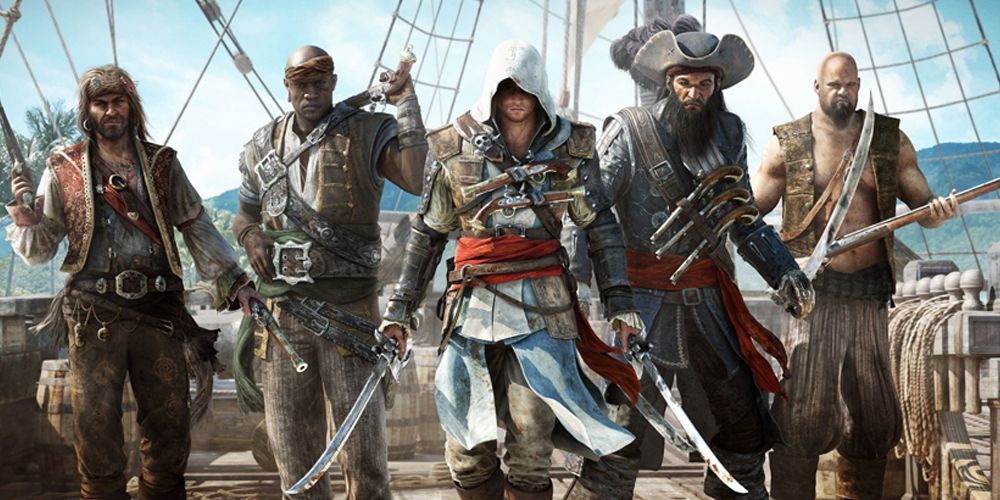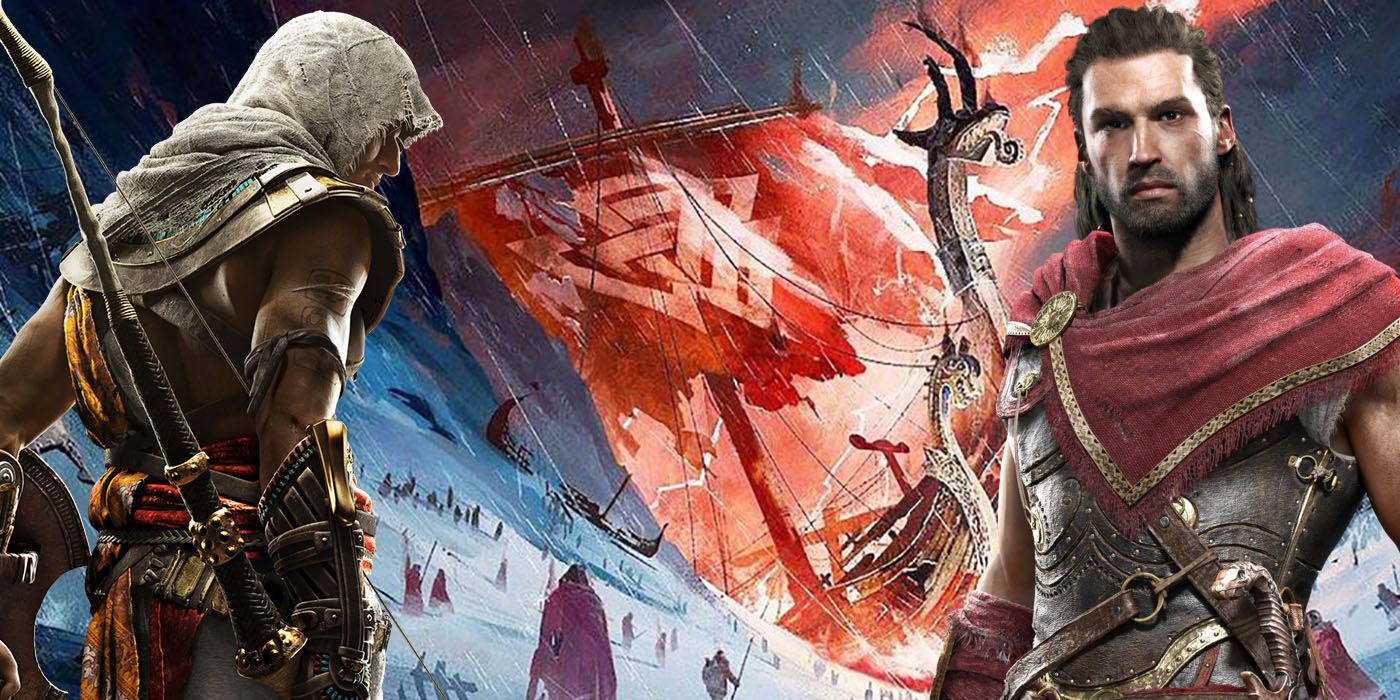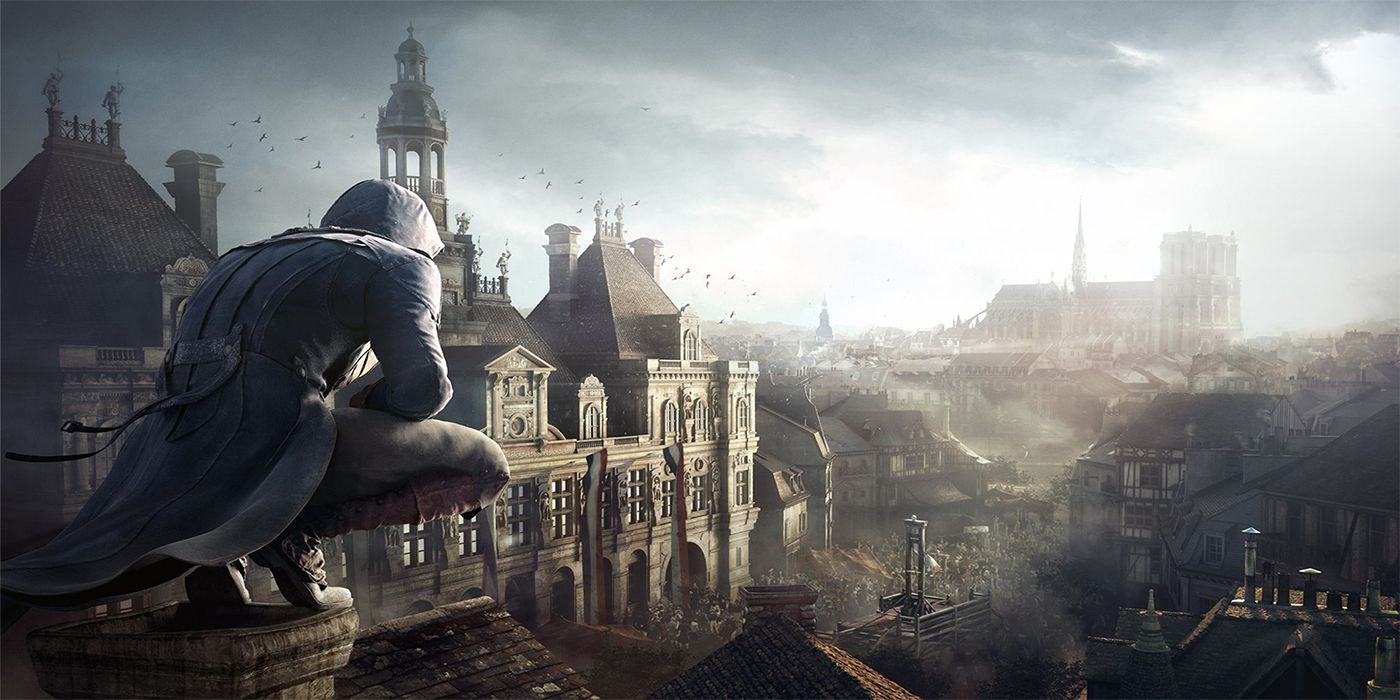In the last few years, Ubisoft's flagship franchise has seen a lot of significant changes in its core design. Assassin's Creed used to be more akin to an action/adventure game, focusing strictly on the core concept of "social" stealth in crowds. For a while, that was the franchise's unique gameplay hook, hiding incognito among citizens or contextual hiding spots and pretending to be another face in the crowd. Though, as the series continued on annually, cracks started to show in the Assassin's Creed gameplay loop that harmed the series' replayability.
Among other factors like Unity's poor release, eventually Ubisoft took some time off from Assassin's Creed to bring the franchise back to the drawing board. Assassin's Creed found success in a radical redesign of its core formula, swapping to a RPG-style framework similar to that of the Witcher 3. From there, while Origins performed quite well for a first outing, Assassin's Creed Odyssey marked the true blossoming of the Assassin's Creed RPG. While it's not necessarily a bad thing, that success means Assassin's Creed won't return to its foundational roots.
The Annualization of Assassin's Creed Started to Crack
In a similar scenario, the first outing ever for Assassin's Creed wasn't particularly remarkable, but it was the start of something great. While the first game helped establish the capabilities of the franchise's unique social stealth systems, Assassin's Creed 2 was when the series came into its own. A compelling revenge story, entertaining characters, honed and refined stealth gameplay, and a huge expansion in scale and scope are what made Assassin's Creed 2 and the series as a whole a burgeoning success.
Subsequent games would continue to iterate on the foundation Assassin's Creed 2 laid, even after Ezio's story was finished, but that's really when the cracks in the gameplay and annual release model started to show. Even before Assassin's Creed Unity became the straw that broke the camel's back, there were signs in Assassin's Creed 3 and Assassin's Creed 4: Black Flag. Even in those two examples, where both Black Flag and Assassin's Creed 3 distracted with exploration and naval combat, the consistent use of tailing missions and lackluster implementation of social stealth were starting to disappoint and alienate the core fanbase.
Borrowing the RPG Approach Revitalized Assassin's Creed
As a result, after the troubling release of Unity and lackluster release of Syndicate, the Assassin's Creed franchise switched gears with Origins. Assassin's Creed Origins took the franchise much further back in time to Ancient Egypt, and also ushered in the RPG mechanics and progression. This new direction for the series saw respectable commendation from fans old and new, and while the social stealth aspects were much more subdued, the context of the game's story justified the new loot and RPG-based progression. This same unique take would persist through the next sequel, Assassin's Creed Odyssey.
From there, Odyssey took Origins' foundation and ran away with an expansive and engaging RPG experience that saw widespread acclaim. The variety and importance of loot became much more customizable, allowing Alexios/Kassandra to be very versatile fighters. The RPG mechanics themselves rewarded and encouraged exploration of Ancient Greece, without offending the pace of the game's main story too far. Assassin's Creed Odyssey ended up being one of the most successful entries in the whole franchise to date, solidifying the fact that the series' new RPG direction was a hit among fans both old and new.
Assassin's Creed May Never Return to its Social Stealth Roots
For hardcore fans of traditional Assassin's Creed, especially those who don't particularly care for RPG Assassin's Creed, they may not be especially thrilled with the future of Assassin's Creed. It's very possible that the Assassin's Creed franchise will stick to the RPG mechanics for as long as possible, especially considering the success its brought for Ubisoft. That's not to say the series is beholden to what sells games, rather that just means future time periods in the series will likely adhere to RPG-level progression. More modern time periods that take place in burgeoning metro areas like Assassin's Creed 2 just wouldn't lend well to that type of game.
That also likely means that more modern historical time periods like from Unity and Syndicate likely won't see any mileage for a while. The highly requested Feudal Japan setting for Assassin's Creed, for example, would be perfect for the RPG-style progression and mechanics that's currently standard for the series. Whereas a World War 2 setting, where there's more modern technology as well as greater population density in cities, RPG mechanics probably wouldn't fit. At the very least in the near future, Assassin's Creed probably won't return to the social stealth roots of the original games. That likely won't disappoint a majority of the fanbase, but for traditionalists, it's not a good sign.
Assassin's Creed Valhalla releases on November 10, 2020, for PC, PS4, Stadia, Xbox One, and Xbox Series X. The PS5 version releases on November 12, 2020.

